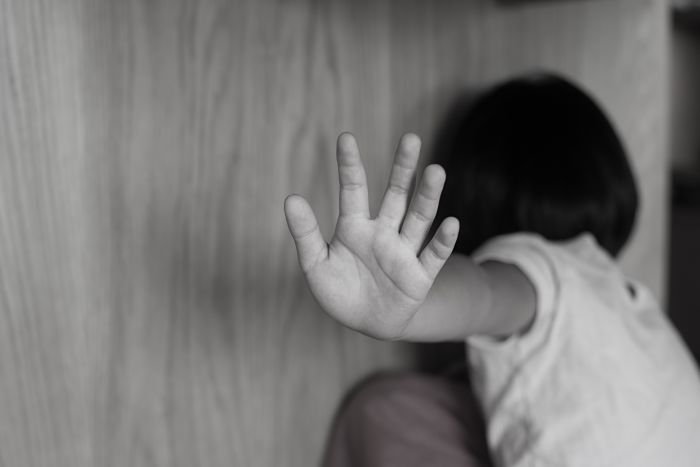Since 2018, the Argentine Federal Police has acted in 1,300 sexual abuse cases, including 17 international operations through INTERPOL, including the Elipsia Network Operation.
How does Argentina fight against online sexual crimes against minors?
Argentina works closely with organisations like “Grooming Argentina” that focuses on three essential areas. These are prevention, awareness and eradication of grooming. This is an interdisciplinary group that comprises the Missing Children civil association that works on online complaints which appear to involve sexual recruitment, the Ministry of Justice that handles tips from the “Niñ@s Team”, with psychologists and social workers who work to fight grooming, child pornography, sexual exploitation and child sex tourism, and the Ministry of National Security which has two hotlines for reporting cases of child sexual exploitation, online sexual abuse and grooming of minors, which are referred to the Police Unit.
Who supports victims and their families and how is this done?
The Cyber Crimes against Children and Adolescents division is governed by Law 27372 of 2017 (rights and guarantees of crime victims), forming the Victim Support Bureau in 2018. This organisation is made up of psychologists who work from the judicial headquarters to assist victims and their families. They also support the families of perpetrators whose homes are raided to arrest suspects and seize their devices, since they are considered victims of the situation to prevent re-victimisation.
Health professionals profile victims and perpetrators to assist agents in their activities and investigations. Police and professionals undertake preventive work by organising awareness days for the community, judges and prosecutors.
What results are you seeing from the 24/7 NETWORK?
The initiative represents a great step forward when it comes to justice in Argentina. The ongoing creation of new prosecutors specialised in crimes related to human trafficking, child pornography and grooming in the province of Buenos Aires and in the Autonomous City of Buenos Aires, and the implementation of an agreement between the Justice Department of the province of Buenos Aires and the rest of the country’s provinces have resulted in the so-called 24/7 Network. It is made up of prosecutors specialised in sexual crimes working through a virtual private network or VPN through which they can send sexual abuse materials, speed up formalities and ensure that evidence is protected and secure.
Do you cooperate in any other ways?
We work closely with INTERPOL through the international database of images and videos on sexual exploitation of minors (ICSE). This database is an investigative and police information tool that allows specialised investigators to exchange data on cases of sexual abuse of minors. Through this work we have increased cooperation activity in our division with the other countries participating in the database by 300%.
An agreement is currently in the pipeline between the Crimes Related to Human Trafficking, Child Pornography and Grooming Department and the Federal Police of Argentina so that all prosecutors specialised in these crimes can send material seized in investigations from each prosecutor’s office to the aforementioned division through the VPN.
What is the current situation?
We are in the process of raising awareness among prosecutors about protocols for sending information regarding child sexual abuse material on the internet. When the computer is in another country these must be sent through INTERPOL to the country of origin rather than filing them as occurred in the past. The ultimate aim is to reach, rescue and protect the abused child to ensure they are rescued and protected.
In terms of the Argentine Ministry of Security, significant preventive efforts are underway, with press campaigns about child sexual abuse and grooming launched by the Federal Police, pointing out the important role of adults responsible for children and the need to report anomalies to the police.
What are the results of the Elipsia Network?
Since the crime of trafficking in child sexual abuse falls within the auspices of the ordinary justice system, the Cybercrime against Children and Adolescents division, by order of the Specialised Prosecutor for Computer Crimes with the Judicial Power of the City of Buenos Aires, ordered 21 simultaneous raids throughout the country on 03/04/2019, as a result of which 26 people involved in the investigation were identified. A large amount of evidence was also obtained, namely 44 mobile phones; 15 computers; 6 modems; 20 hard drives; 1 switch; 5 micro SD; 10 pen drives; 14 invoices from internet service providers; 3 routers; 3 chips from mobile phone companies; 50 optical media; 8 tablets; 9 notebooks; 2 digital cameras; 3 video game consoles; 9 magazines with annotations referring to child pornography).
It should be mentioned there are no pending measures to be carried out on the police side, and it is not possible to determine the penalties imposed by the courts because the investigation is still open and requires assessment. For procedural reasons, this task lies with the Judicial Investigation Corps with the Public Prosecutor’s Office of the city of Buenos Aires.
Is the Elipsia Network useful?
It is important to recognise how important it has been to establish the Elipsia Network since the exchange of experiences, knowledge, good practices, sharing information on tools, resources and investigative and operational methods provided by international cooperation, is crucial in the fight against child sexual abuse on the internet because it is transnational.
It is also essential to underline the urgency of the task of finding each child or adolescent victim of sexual abuse, each State party acting according to international conventions and local laws, with the obligation to care for, act, rescue and protect the physical and psychological wellbeing of underage victims.
Sandra Moreno, head of the Cyber Crime against Children and Adolescent Division of the Argentine Federal Police.
